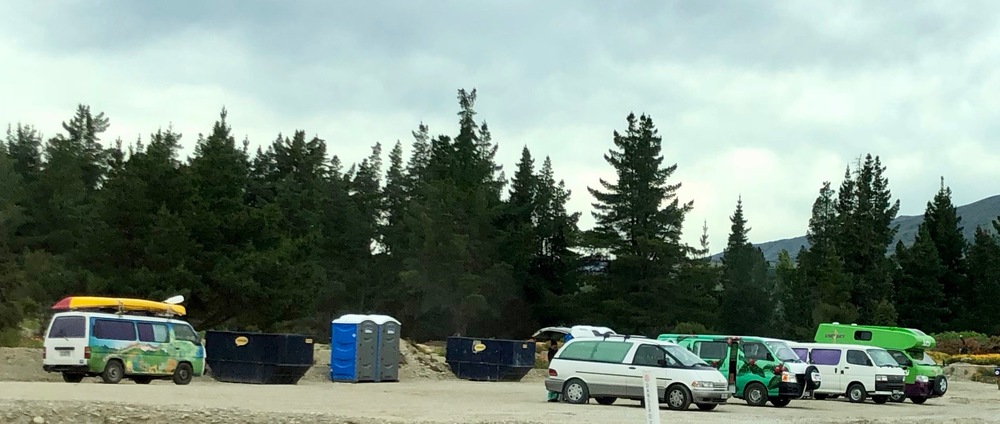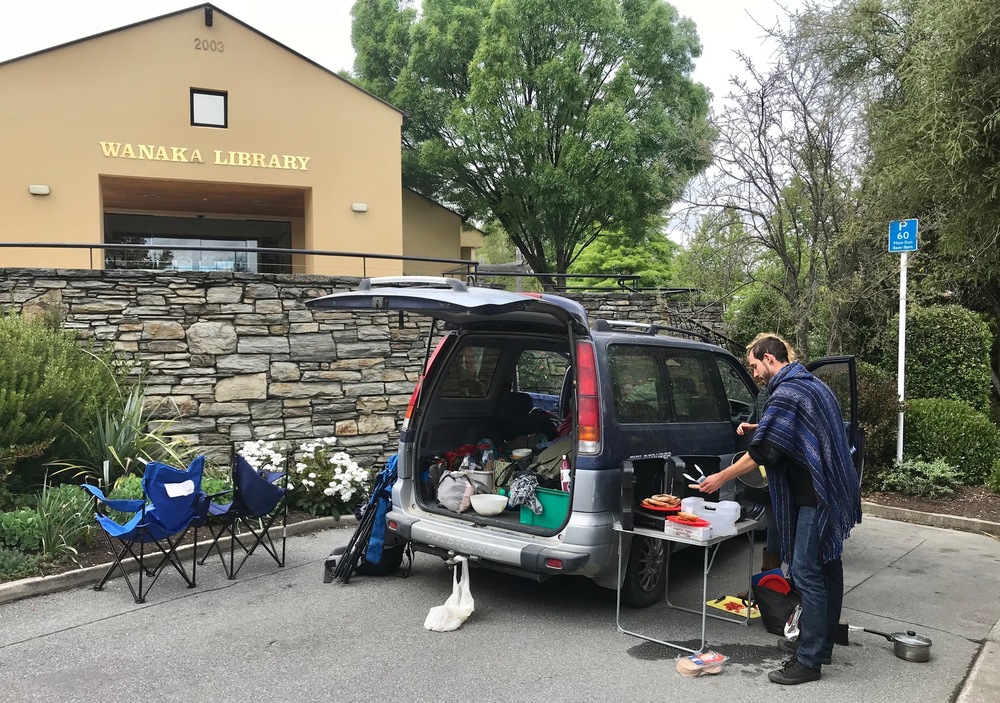Plan to tighten freedom camping rules announced
Maddy Harker
30 November 2021, 12:57 AM
 New laws from the government will reduce the impact of freedom camping on communities and the environment, tourism minister Stuart Nash said.
New laws from the government will reduce the impact of freedom camping on communities and the environment, tourism minister Stuart Nash said.Tougher freedom camping laws will be introduced across New Zealand to prevent abuse which has placed an unfair burden on small communities and damaged the country’s reputation as a high quality visitor destination, tourism minister Stuart Nash says.
Stuart was in Queenstown today (Tuesday November 30) to announce the new legislation, due to be introduced to parliament following public consultation earlier this year, which will tighten up freedom camping rules so when international borders reopen there will be clear, minimum expectations for campers.
“Backpackers in budget vehicles are welcome. Motorhomes and towed caravans are welcome,” Stuart said. “But at the heart of the new law will be greater respect for the environment and communities through a ‘right vehicle, right place’ approach.”
Higher standards - including the requirement that a toilet must be fixed for a vehicle to be labelled self-contained - will need to be met, Stuart said.

A freedom camping site near the Red Bridge was created by council in response to locals’ concerns; it was declared a success by the mayor but many locals remain unhappy with the management of freedom campers in the Upper Clutha.
“Feedback from communities and councils made it clear some freedom campers remain a problem. Issues include uncertified vehicles, parking outside designated areas including on private driveways and front lawns, littering, and disposal of human waste.”
The concerns of Upper Clutha residents around freedom camping were highlighted in a 2018 survey conducted by Queenstown Lakes District Council (QLDC) which led to a review and updated QLDC Freedom Camping Bylaw 2019.
Public concerns included increasing freedom camping numbers resulting in over-crowding, risks to public health due to human waste, and potential damage to the environment with people bathing and washing dishes and clothes in the lakes and rivers at well-known reserves, including the Wānaka lakefront.

At the heart of the new laws is a greater respect for the environment and communities, Stuart said.
After council trialled a freedom camping hub on Ballantyne Road and a dedicated freedom camping site near the Red Bridge in the summer of 2018 and 2019 mayor Jim Boult said freedom camping was “no longer an issue” in the Upper Clutha, but many residents continued to raise concerns and local campgrounds who lost business to the ratepayer-subsidised free camping site were left out of pocket.
One of the key issues raised by locals in their submissions to the bylaw review was the national standard for self-containment which allowed for portable toilets, which was inconsistent with the QLDC’s own Responsible Camping Strategy.
The new proposed national standards will bring them more in line with the Responsible Camping Strategy.
Feedback received by QLDC on its draft Freedom Camping Bylaw 2021 also showed the level of dissatisfaction with freedom camping management in the district, with just seven percent of the 246 people who made submissions supporting the draft bylaw.
Stuart said when international borders reopen the volume of tourism will not match pre-Covid levels, “but we can expect greater pressure”.
The government has committed $10M in transitional funding to support local councils to educate freedom campers and develop local bylaws over two years, he said.
QLDC was approached for comment.
The new legislation will mean:
- Freedom campers will need to be in a certified self-contained vehicle to stay overnight on land managed by local councils, unless the council has designated the area for non-certified vehicles.
- Freedom campers will be able to stay on Department of Conservation (DoC) land in vehicles that are not self-contained, unless DoC has formally restricted or prohibited camping in such vehicles.
- Freedom campers can continue to stay overnight in tents, where permitted.
- The infringement system will be strengthened with tougher fines and penalties of up to $1,000, replacing the current $200 fine.
- A new regulatory system to enable vehicles to be certified as self-contained. It will specify all vehicles must have a fixed toilet.
- Certification will be overseen by agents authorised by the plumbers, gasfitters and drainlayers board.
- The new rules can also be extended to cover land managed by Waka Kotahi-NZTA, and Toitū Te Whenua-Land Information NZ.
PHOTOS: Wānaka App





